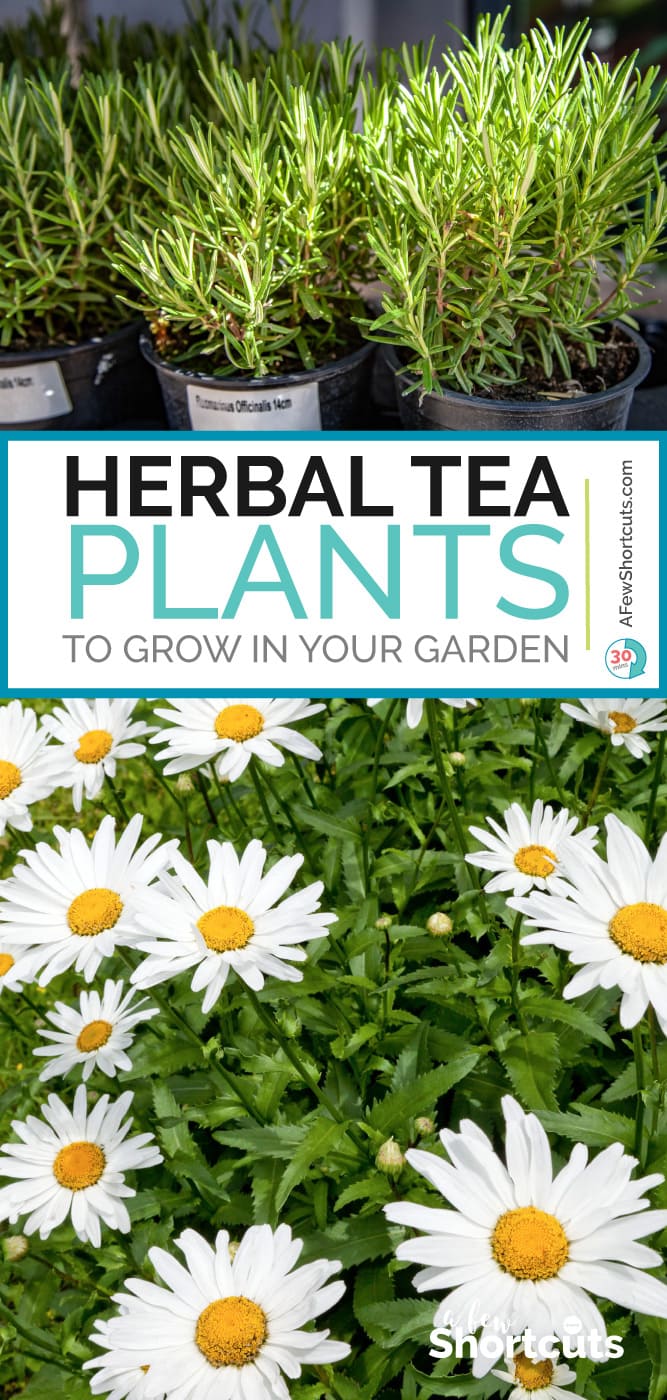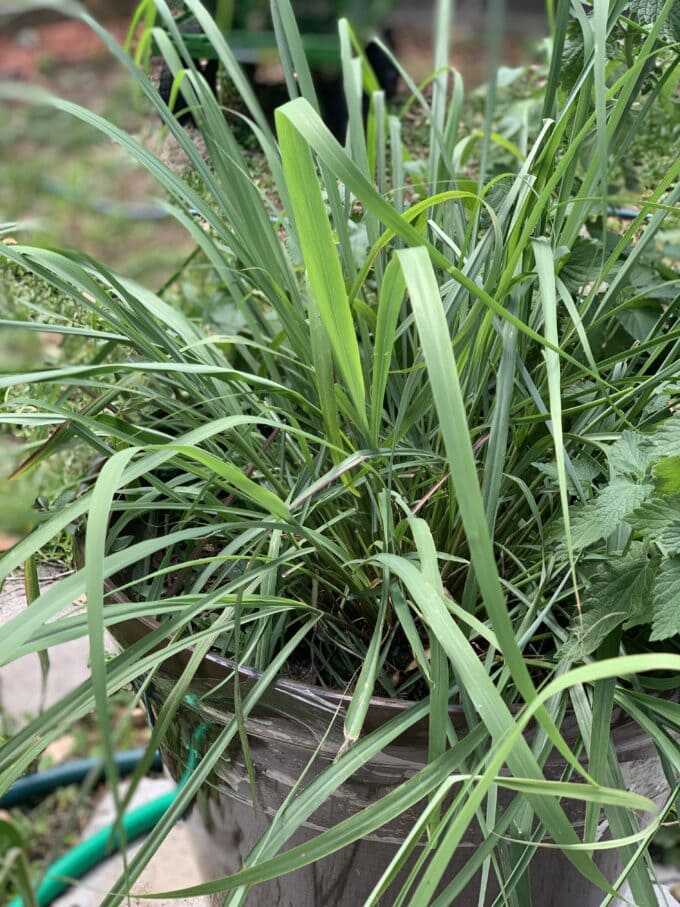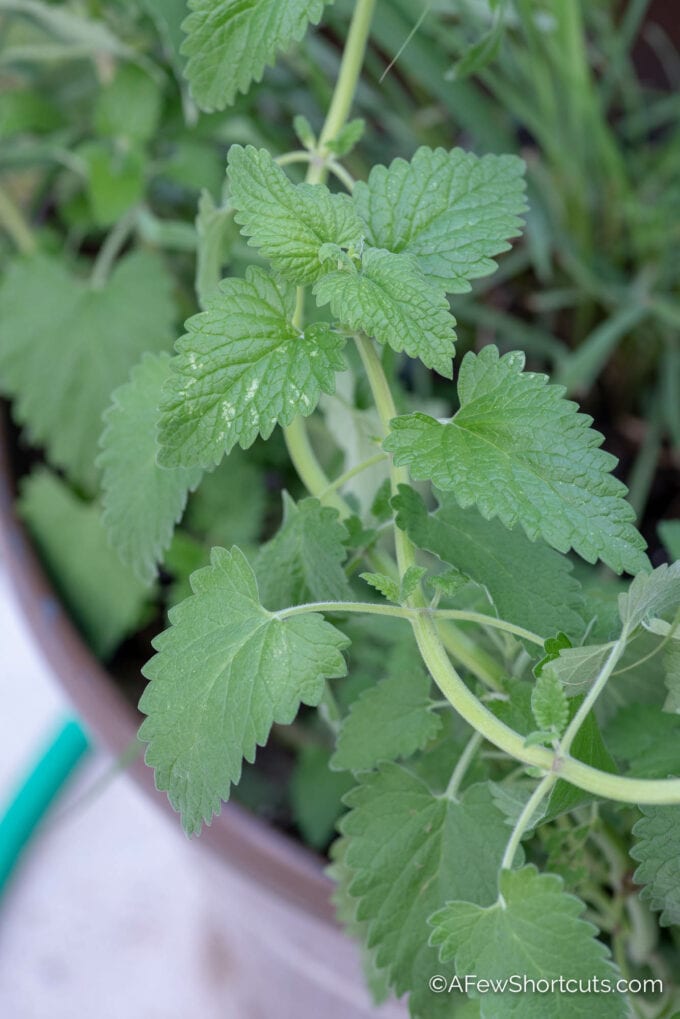Herbal Tea Plants That You Should be Growing In Your Garden
If you love herbal tea, it’s time to start gardening. Check out these Herbal tea plants that you should be growing in your garden.
I am a coffee girl, but my daughters both have a deep love for tea. I do love the health benefits that tea brings and think that is something amazing to add to your day. This year we have added some Herbal Tea Plants to our garden. Not only are they beautiful and smell amazing, but we can now mix and match our own herbal teas. Plus, we can use the plants as ingredients for other recipes too! Check out these Herbal Tea Plants That You Should be Growing In Your Garden!
*Health Disclaimer – All of this is general information not provided by a health professional. Please consult your doctor or health professional before adding herbs to your diet.
Herbal Tea Plants
Lemongrass
Lemongrass is a new favorite of mine. The plant itself is an herb that can be used in everyday cooking and is nice to plant around the house because it repels insects! How awesome is that?
As far as tea benefits lemongrass is known for its anxiety relieving, anti-inflammatory properties. Also great if you are suffering from gas or bloating.
- cut the stalks into 1- to 2-inch pieces
- boil a cup of water
- pour the boiling water over the lemongrass stalks to steep
- leave the stalks in the water for at least 5 minutes
- Strain it in a cup and enjoy!
Just like the name implies this does have a lemony flavor and aroma. You can even grow, dry, and keep your lemongrass for year round use in your tea blends.
Peppermint
Peppermint is a classic herb to grow in your garden, but it is an excellent way to spice up your tea too! If you need relief, think Peppermint! It gives relief from stress, headaches, and sinus pain and pressure. If you just remember that peppermint is for relief the rest kind of falls into place. This is a go-to if you have any type of cramps, and it will even help you relax to get a good nights sleep.
PS: Peppermint repels spiders. Talk about a relief! LOL
- Boil a cup of water
- Add peppermint leaves to the water. Steep the leaves for 5-10 minutes.
- Reheat if desired.
- Strain it in a cup and enjoy!
Hibiscus
Hibiscus is not generally something you would think to grow for tea. Its beautiful colorful tropical flowers are definitely a show stopper in the garden. When those flowers are done being beautiful pick them, dry them, and let them be tea!
The red color should remind you of heart health. Hibiscus is great for lowering blood pressure, cholesterol, and being beneficial to weight loss. It is also great for balancing hormones and just its great antioxidants.
When drying your own hibiscus only use the red flower remove all green stems. You can also buy dried hibiscus flowers online ready to use in your tea blends.
Caution: Hibiscus is not recommended for pregnant women because it can stimulate blood flow and alter hormones.
- Boil water
- Add hibiscus flowers to boiling water (and other herbs if desired for a blend)
- Steep for 15-20 minutes
- Strain it in a cup and enjoy
Great for a colorful soothing iced tea during the summer.
Lemon Balm
Lemon Balm is a new addition to my garden, and frankly, I am wondering what took me so long. If you are into essential oils at all you may also know Lemon Balm by its other name, Melissa. Learn more about growing lemon balm (right here)
Lemon Balm is related to mint making it a perfect herbal tea plant. It grows similarly to regular peppermint and tastes like a lemon mint. The benefits of this one is where it is at. It calms anxiety and just calms in general. Lemon Balm is known for lowering triglycerides, reducing blood sugar, treating insomnia, helping ADHD, helping PMS, and reducing inflammation.
Caution: Avoid lemon balm if you have a hypothyroid condition because the calming effects of lemon balm can throw it more off balance.
-
Chop the lemon balm leaves to release their oils. Set aside.
-
Boil a cup of water
-
Mix the leaves and water in a mug and allow to stand 10 minutes to steep.
- Strain it in a cup and enjoy.
Chamomile
Many people love chamomile tea but didn’t know that it is an herb you can grow on your own. When it comes to herbal tea plants, Chamomile has pretty white flowers that make it a garden gem.
Chamomile is also great for helping you get a good nights sleep, relaxing, soothing skin, managing blood sugar, reducing anxiety, and an immune system boost.
- Boil a cup of water
- Add 3-4 Tbsp fresh chamomile flowers
- Steep for 5 minutes
- Strain it in a cup and enjoy.
Rosemary
Rosemary is a great culinary herb that is found in many gardens for cooking, but it can also make a great cup of tea. This tea is perfect if you are having digestion issues. Just brew a cup and sip to help support a healthy gut and aid in nutrient absorption.
A cup of rosemary tea is full of antioxidants and high vitamin c levels that are great for your immune system. Rosemary also contains just the right nutrients to help your hair be thicker, fuller, and get it growing. Who knew?
- Boil a cup of water
- Add 1 tsp rosemary leaves
- Steep for 5-6 minutes
- Strain it in a cup and enjoy.
Lavender
I simply love lavender. I love to smell it, its purple flowers, and the tea is divine! If you can grow lavender successfully in your garden it has so many uses.
Lavender tea can most definitely improve sleep. This tea also has detox properties, boosts immune system, and calms upset stomaches. Lavender tea is also beneficial to those with allergies or breathing difficulties. All around it is just a pleasant addition to your herbal tea garden.
- Boil a cup of water
- Add 2 tablespoons fresh lavender buds
- Steep for 8 – 10 minutes
- Strain it in a cup and enjoy.
Ginger
Ginger is so good in so many forms. Many people never consider growing their own, but it may be easier than you think. You can actually purchase organic ginger from the grocery store and plant it to cultivate your own ginger. Since it is a tuber, the root you use grows underground. The plant itself can spread rapidly so I recommend growing this one in a container.
Now the benefits of having ginger in your herbal tea garden are huge! Ginger is great for many stomach problems. It’s super for nausea and one of the first herbs to reach for when a cold hits. Ginger is also a great stress reliever and immunity builder. A little bit of ginger with honey and lemon does wonders for a sore throat too!
- Boil a cup of water
- Add 2-inch piece ginger root, thinly sliced
- Steep for 15 to 20 minutes
- Strain it in a cup and enjoy!
Because the government makes me …
Disclosure
The information, advice, statements, and testimonials made about the herbs, blends, and products mentioned on this website have not been evaluated by the United States Food and Drug Administration (FDA). The information on this site and the products listed are not intended to diagnose, treat, cure or prevent disease, nor are they intended to replace proper medical help. It is always recommended to consult with a healthcare professional before starting any regimen with essential oils. User-submitted testimonials are based on individual results and do not constitute a guarantee that you will achieve the same results – what works for one may not work for another.
**Note I am not a physician. Please read our disclosure policy**















